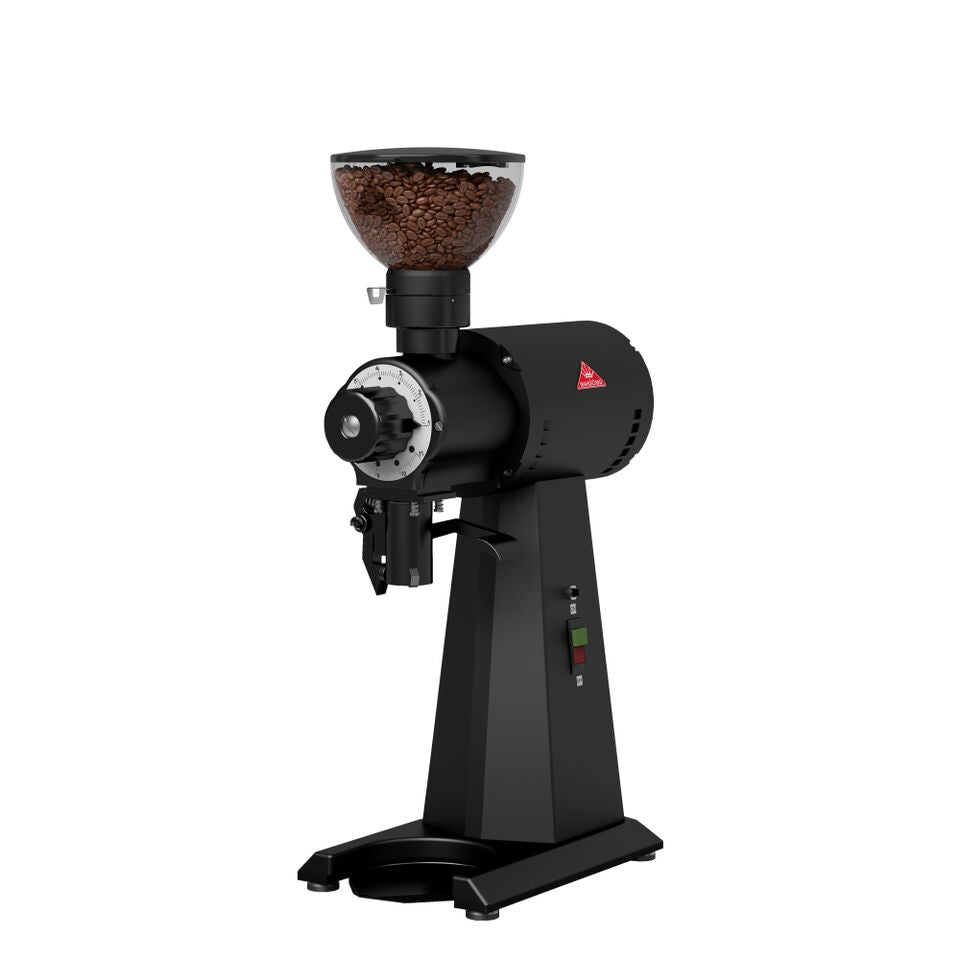Industrial Coffee Grinder Overview: Boost Performance and Quality
In the affordable landscape of coffee manufacturing, picking the ideal industrial coffee grinder plays a pivotal role in enhancing both effectiveness and item top quality. Recognizing the subtleties of different grinder types and essential functions-- such as customizable grind setups and durable building and construction-- can significantly influence the last flavor account of the coffee.
Recognizing Mill Types
When picking a commercial coffee grinder, understanding the different kinds readily available is critical for enhancing both taste removal and operational performance. The two key kinds of grinders are blade mills and burr grinders.

Eventually, selecting the ideal sort of mill is essential to maintaining top quality and performance in coffee manufacturing, making it essential for organizations to purchase top notch burr grinders for optimum results.
Secret Attributes to Think About
Choosing an industrial coffee grinder calls for mindful consideration of several crucial attributes that can significantly affect both performance and the overall coffee experience. One of the primary aspects to evaluate is the grinding system. Burr grinders are normally favored over blade grinders, as they give a constant grind dimension, which is vital for optimum removal and flavor.
Another important function is the mill's capacity. Depending on the volume of coffee you need to process, choose a design that can handle your requirements without compromising speed or top quality. In addition, take into consideration the work settings provided. A versatile grinder with multiple settings enables you to tailor the grind size to various brewing techniques, improving the coffee's flavor profile.
The construction product additionally plays a duty in resilience and maintenance. Stainless-steel elements typically provide longevity and are easier to cleanse, which is necessary for preserving hygiene criteria. Last but not least, assess the mill's sound level, especially in an active café or manufacturing setting, where extreme noise can be turbulent. Purchasing a mill that balances these attributes can considerably enhance both functional efficiency and the quality of the coffee offered.
Optimizing Grinding Refine
To achieve the finest outcomes in coffee preparation, maximizing the grinding procedure is crucial. The grind size substantially affects removal, flavor, and general top quality of the made coffee. Different brewing techniques call for specific work sizes; for example, coffee demands a fine work, while French press requires a rugged appearance. Understanding the relationship between work dimension and brewing method is the primary step in optimization.


In addition, keeping track of the grinding speed can optimize the process. Slower grinding frequently generates less heat, preserving fragile tastes and fragrances. Alternatively, faster grinding may generate too much warmth, adversely influencing the coffee's quality.
Maintenance and Care Tips
Correct upkeep and treatment of commercial coffee grinders are necessary for making certain optimum efficiency and longevity. Routine cleaning is the structure of upkeep; residue buildup can impact taste and grinding effectiveness. It is a good idea to clean up the mill after each usage, cleaning down the outside and eliminating any type of coffee premises from the burrs.
In addition, check the grinding burrs for deterioration. Dull burrs can endanger work uniformity, so they ought to be replaced as needed. Industrial Coffee Grinder. Occasionally adjusting the mill is likewise essential, as this maintains the preferred grind dimension for various brewing approaches
Lubrication of moving components must be carried out according to the producer's requirements, as this minimizes friction and lengthens the life of the equipment. It is important to use food-grade lubricating substances to make sure safety and conformity with health laws.
Finally, keep the grinder in a completely website link dry and steady setting to stop corrosion and corrosion. By adhering to these maintenance and treatment tips, operators can boost the efficiency of their industrial coffee mills while guaranteeing top quality outcome and prolonged operational life.
Return on Financial Investment Evaluation
Assessing the roi (ROI) for commercial coffee grinders is vital for businesses seeking to optimize their coffee manufacturing capacities. An extensive ROI evaluation assists figure out the economic practicality of buying high-grade grinders, allowing businesses to evaluate check here the first prices versus possible gains.
Analyze the acquisition cost of the mill, including installation and any kind of necessary adjustments to existing framework. High-performance mills typically lead to reduced grinding time and raised throughput, which can substantially improve efficiency.
Additionally, take into consideration the effect on item high quality. Industrial Coffee Grinder. Superior mills yield an even more consistent work size, which can boost taste profiles and client complete satisfaction, ultimately driving sales. By boosting the quality of the end product, companies can warrant higher rates, resulting in increased profits
Final Thought
In summary, a commercial coffee mill plays a crucial duty in boosting both performance and item top quality within coffee manufacturing. Inevitably, the critical financial investment in a trusted mill contributes substantially to enhanced revenue and competition in the coffee sector.
In the affordable landscape of coffee manufacturing, selecting the right commercial coffee mill plays an essential role in enhancing both effectiveness and product top quality. The 2 main types of mills are blade mills and burr grinders. Within the burr mill group, there are flat burr grinders and conical burr grinders, each with its benefits. Burr mills are usually liked over blade grinders, as they provide a regular work size, which is crucial for ideal extraction and flavor.
In recap, an industrial coffee mill plays a crucial role in boosting both performance and product top quality within useful source coffee production.